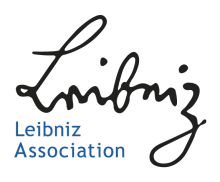![]() Receive the Funding Newswire [full access requires a subscription] each Tuesday, our Policy Bulletin each Thursday, and news about bridging Europe’s east-west innovation gap twice a month in The Widening.
Receive the Funding Newswire [full access requires a subscription] each Tuesday, our Policy Bulletin each Thursday, and news about bridging Europe’s east-west innovation gap twice a month in The Widening.
Sign up for the Funding Newswire

The Leibniz Association unites 96 German research institutions across various scientific fields. Its institutes address societal issues through fundamental and applied research. The association maintains scientific infrastructures, provides research-based services, and fosters cooperation. It facilitates knowledge transfer and advises policymakers, academia, industry, and stimulates engagement with the general public.
The Leibniz Association serves as a vital framework for fostering best research practices, emphasizing academic excellence and social relevance. It ensures adherence to clear standards for international quality assurance, promoting robust, science-driven projects. Its institutes champion interdisciplinary collaboration and exploration of emerging research fields, partnering closely with universities and other local, national, and international entities. This collaborative model of the Leibniz Association enhances responsiveness to societal issues, facilitating dynamic interactions between science and society. The association plays a pivotal role in knowledge and technology transfer, providing social and political consultancy. While the institutes are autonomous, they engage in close scientific cooperation through initiatives such as Leibniz Research Alliances and Networks, which focus on regular exchange of information, cooperation in areas of common interest, and active political and public engagement. Extending beyond academic research, the Leibniz Association maintains vital scientific infrastructures and provides essential research services, bridging the gap between theoretical discoveries and practical applications. As a pivotal advisory entity for policymakers, academia and industry, the association significantly contributes to advancing scientific understanding and addressing pressing societal issues, reinforcing its importance in Germany's research landscape. Its institutions are subject to a transparent, independent evaluation process, which ensures their credibility and effectiveness. Because of their national importance, the Leibniz Institutes are jointly funded by the German federal and state governments. With around 21,300 employees, including 12,200 researchers, the association manages a financial volume of 2.2 billion euros, underlining its considerable impact and operational scale.
Learn more: